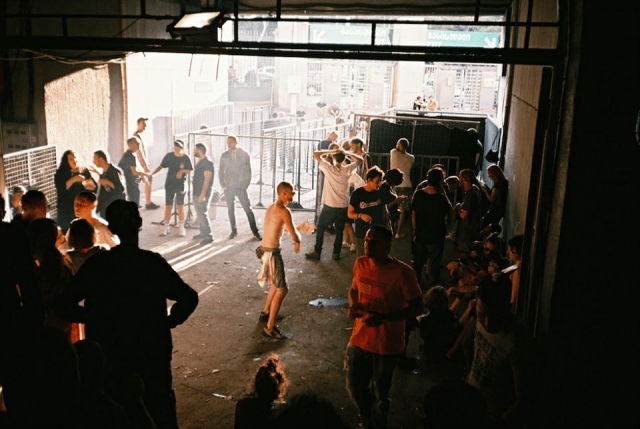The Guardain Interviews Bassiani Founders
On 22 January, the British newspaper the Guardian released an article ‘Bassiani: the Tbilisi techno mecca shaking off post-Soviet repression’, which included an interview with the club’s founders.
Following the police raids on Bassiani and Cafe Gallery in May 2018, Bassiani has gained notoriety around the world. The club has also become an emblem for change in Georgia as the typically conservative country awakes from years of repressive rule.
Bassiani was founded by Zviad Gelbakhiani, Tato Getia and Naja Orashvili in 2014. Housed in an ex-Soviet swimming pool under the national stadium, its industrial layout has drawn comparisons to Berlin’s infamous Berghain club.
As well as booking international artists, the club nurtures a cadre of resident DJs some of which have broken into the European scene, including Kancheli, HVL, and NDRX.
With darkrooms and inclusive policy, Bassiani has become a safe-haven for Tbilisi’s LGBTQ community. For this reason, the club has a face control policy. “We really support LGBTQ people and there are many of them dancing in the club, so we don’t want to see somebody being aggressive,” explains Gelbakhiani.
Bassiani has also become a catalyst for changing attitudes towards drugs in Georgia. It is connected with the White Noise movement, which calls for a relaxation of Georgia’s harsh drug laws. Since the election of a pro-European government in 2012, drug laws have been vague. It’s “really confusing for all of us,” says Gelbakhiani. “One day the government is demonizing the whole clubbing scene, and the next day they say that marijuana is not bad for your health and we should decriminalize it.”
The police raids on Bassiani cemented its politicization. “We became a really big part of the political processes in town. [The police] called us for interrogation...it’s really emotional and it really plays on your nerves.”
Nonetheless, Gelbakhiani hopes that the techno movement will continue to spark positive change in the region as clubs like Bassiani represent acceptance and freedom. “There is a really interesting process happening.” ends Gelbakhiani. “We are a really repressed people after the collapse of the Soviet Union. [In Azerbaijan and Armenia] they’re still authoritarian, recovering from these regimes. I hope that one day in Baku they will have a festival and invite Azerbaijanis and Armenians - even though they have this conflict. We are seeing the techno scene as a tool to unite these people.”
You can read the full Guardian article here.
by Amy Jones
photo source: the Guardian











